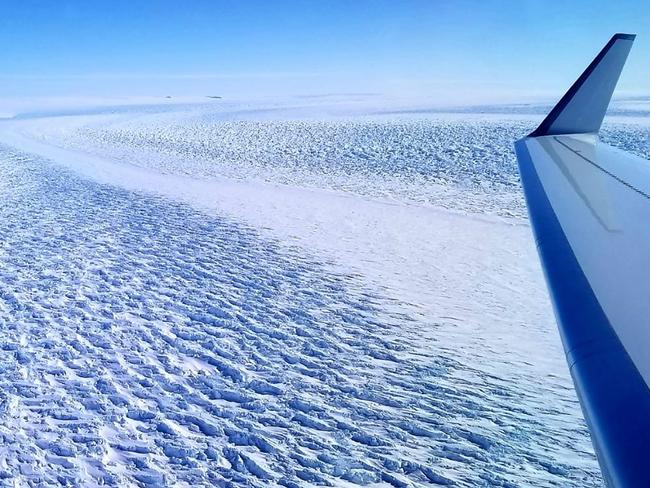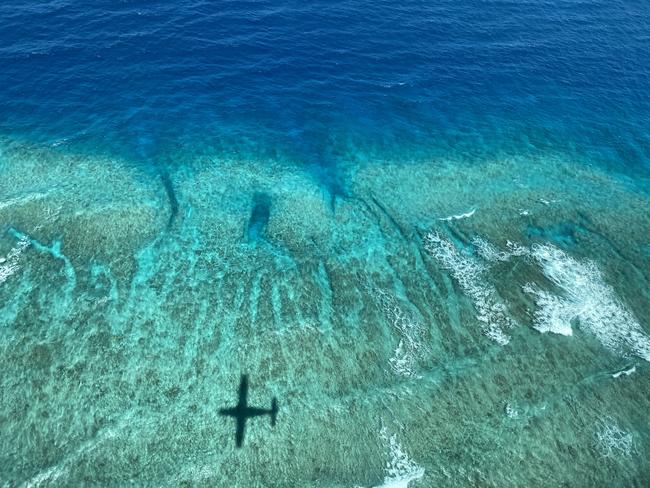Talking Point: Agog at the spectacle and hungry for David Walsh’s numbers
PETER BOYER: Sadly it takes a pandemic to remind us of science’s role in human success

Opinion
Don't miss out on the headlines from Opinion. Followed categories will be added to My News.
A PANDEMIC is tailor-made for mathematical nerds. One of these is the founder of Mona, David Walsh, who after closing his celebrated art museum three weeks ago began an irregular online diary of his COVID-19 world.
Walsh has combined a lifelong interest in science with a gambler’s number skills to do some informed speculating about the unfolding of the pandemic. His diary and some readers’ comments, which you can find on Mona’s website, are as illuminating as they’re entertaining. A lot about managing an epidemic is counterintuitive. Walsh invites us to contemplate things like exponential growth, delayed responses and herd immunity, so we can better understand the complexities in slowing the spread of this contagion.
Our own preconceptions can be a handicap. “I failed to believe the potential scale of the catastrophe, even with the evidence laid out before me,” says Walsh. “It’s no wonder … that many who will barely be affected, or who want to protect the status quo, aren’t heeding warnings.”
Walsh is tapping into a rich vein of interest. Right now millions around the world are desperate to know more about the pandemic, to understand how the novel coronavirus got into our communities, what it can do to us and what we must do to stop it.
Agog at the spectacle of leaders trashing old rules of government, upturning lives and crippling economies, people everywhere are keen to understand why. Science — the science of epidemiology — is suddenly in the spotlight as its exponents try to map the progress of the virus.
This is good news. For as long as I’ve been alive government economic policy has ignored the fact that human success as a species depends utterly on the rest of our living planet. We needed a forceful reminder of this and of science’s role in understanding it. It’s sad that it took a pandemic to do it.
But global ecosystems involve vastly more than a virus. In the pandemonium of COVID-19 we’re in danger of missing some portentous developments in a world where seas still heat up and ice still melts. Here are just two examples from last month.

Australian coastal planning is based on a worst-case scenario of about a metre of sea level rise this century, which would be a massive issue for coastal property owners. But uncertainty around ice sheet stability in Antarctica suggests that estimate may be too low by a factor of two or three.
Most research into Antarctic ice loss has focused on West Antarctica, south of South America. But a US research team has been looking at East Antarctica’s Denman Glacier, south of Australia, draining an ice basin which if fully thawed would raise global sea levels 1.5m.
The team concluded in a paper late last month that the bedrock under Denman Glacier, which over 40 years had already lost 268 billion tons of ice, featured a deep trough, allowing seawater to undermine the glacier and set the scene for “rapid and irreversible retreat”.
An investigation closer to home would be alarming the Australian tourism sector if it hadn’t already been knocked out cold by the summer bushfires and the pandemic.
For at least half a century, the vast complex of coral outcrops that make up the Great Barrier Reef have been Australia’s premier natural tourist attraction. But most corals dislike warm water, and a pattern of repeated marine heatwaves has thrown the Reef’s future into jeopardy. Two weeks ago the Great Barrier Reef Marine Park Authority confirmed what scientists suspected, summer and autumn have seen severe bleaching in southern parts of the Reef, which had been relatively undamaged in the previous worst bleaching years of 2016 and 2017. Most of the damage done in those earlier years had been in shallow waters, especially the central and northern Reef. But an aerial survey reveals damage extending into deeper waters on the Reef’s outer edge, and even to heat-tolerant corals in far-northern waters.
These are new additions to old stories. For decades, climate models had been projecting the warming. In recent years, observing the projections materialising in heatwaves and melting ice, science has been banging loudly on government doors trying to get attention, to no avail.
COVID-19 will come to an end; the vastly bigger peril of climate change will not. Leaders are now intently following scientific direction in response to a global pandemic. So they must know that when scientists talk of a rising climate threat they should take the time to listen. Surely?
A former Mercury reporter and public servant, Peter Boyer specialises in the science and politics of climate.


